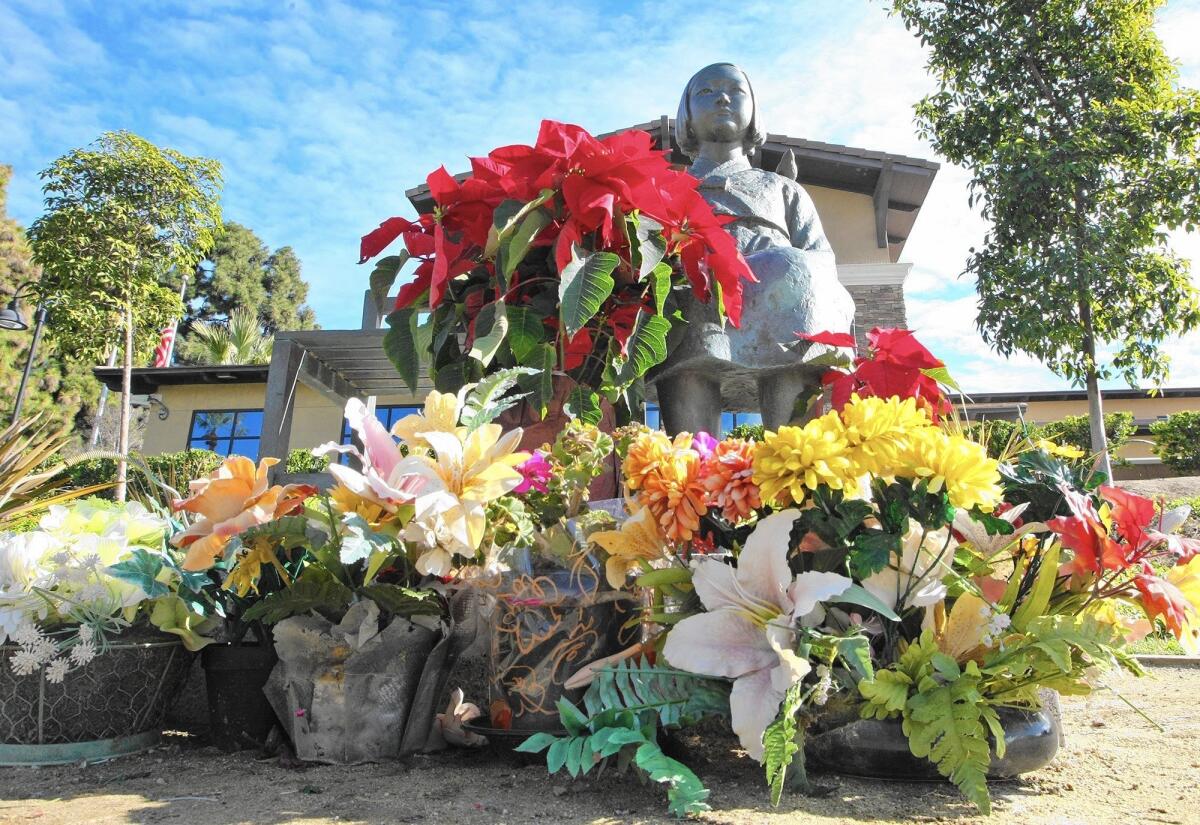Governments reconcile ‘comfort women’ issue, but local Korean community unhappy with Japan’s apology

Flowers were left in front of the comfort-women statue in Glendale on Monday, Dec. 28, 2015.
- Share via
Japan’s government apologized Monday for coercing South Korean women into sex slavery during World War II and offered $8 million to the remaining survivors, but some from the local Korean community are denouncing the gesture.
Japanese Prime Minister Shinzo Abe apologized to South Korean President Park Geun-hye, saying he was remorseful for all the women who underwent immeasurable and painful experiences more than 70 years ago.
Historians believe as many as 200,000 women from South Korea and nearly a dozen other southeast Asian countries were kidnapped — many of whom were children at the time — and forced to work in brothels.
Those victims are often now referred to as “comfort women.”
While the South Korean government was receptive toward the apology, some South Koreans are angry about part of an agreement between the two countries that states they will “refrain from accusing or criticizing each other regarding the issue in the international community, including at the United Nations.”
Phyllis Kim, spokeswoman for the Korean American Forum of California, said it’s not right for Japan to ask for silence on the issue into the future, especially when it comes to history textbooks down the road.
She was speaking to the press at the comfort-women statue in Glendale, a controversial fixture that some have tried and failed to have removed by filing lawsuits against the city.
“[The apology] hastily concludes that the Korean government shall not raise the issue in the international scene ever again and to shut up. What kind of agreement is that?” she said.
Kim often works with surviving comfort women, who she refers to as “grandmas” because most of them are in their 80s and 90s now, and said they reject the apology, especially because they and women from other countries were left out of the dialogue.
“The scope of the agreement that came out was very disappointing because it was scaled down to a Korea-Japan diplomacy issue. It is a human rights issue,” she said. “Some hundreds and thousands of women were affected from 11 different countries.”
The Japanese government’s $8.1 million in reparations would go toward creating a foundation to support surviving comfort women.
In a press statement, Japan’s foreign minister Fumio Kishida said the matter of comfort women has been resolved “finally and irreversibly.”
--
Arin Mikailian, arin.mikailian@latimes.com
Twitter: @ArinMikailian
